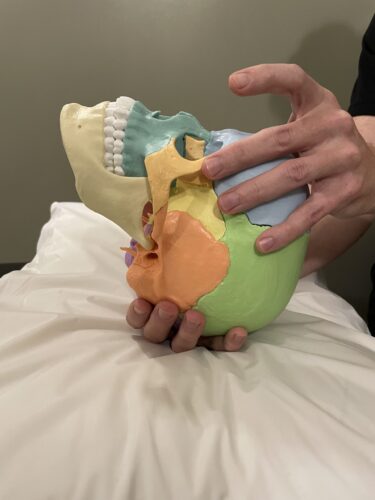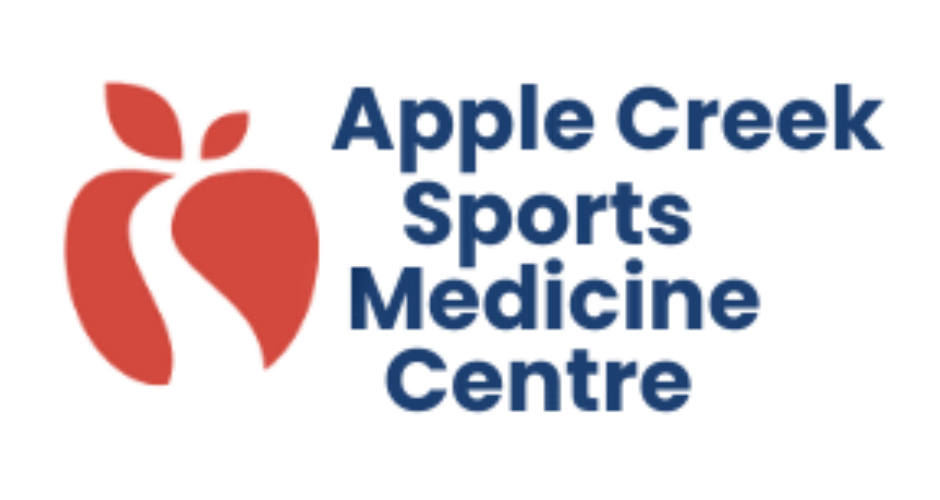
Healing Hands:
How Osteopathy alleviates headaches
Headaches can be debilitating, affecting millions of people worldwide. Whether it’s tension headaches from stress, migraines triggered by specific stimuli, or cervicogenic headaches stemming from neck issues, the pain can be overwhelming. While medication is often the go-to solution, there’s another avenue worth exploring: osteopathy. Osteopathy, a holistic approach to healthcare, offers a unique perspective on treating headaches by addressing underlying musculoskeletal imbalances. Let’s delve into how osteopathy can be a game-changer in alleviating headaches.

Understanding Osteopathy:
Osteopathy is a branch of alternative medicine that emphasizes the interrelationship between the body’s structure and its function. It operates on the principle that the body has the innate ability to heal itself when given the right conditions. Osteopaths are trained to identify and treat dysfunctions in the musculoskeletal system, which can contribute to various health issues, including headaches.
The Link Between Headaches and Musculoskeletal Imbalances:
Many headaches are closely linked to musculoskeletal issues. For example, tension headaches often result from tightness and strain in the muscles of the neck, shoulders, and scalp. Similarly, cervicogenic headaches originate from abnormalities in the cervical spine or neck muscles. Even migraines, though primarily neurological in nature, can be exacerbated by muscular tension and poor posture.
How Osteopathy Helps:
Osteopathic treatment for headaches focuses on restoring balance and mobility to the musculoskeletal system. Here’s how it can help:
Manual Therapy: Osteopaths use various hands-on techniques to manipulate muscles, joints, and soft tissues. This may include massage, stretching, and gentle manipulation to relieve tension, improve circulation, and restore proper alignment.
Spinal Manipulation: Misalignments in the spine (subluxations) can contribute to headaches. Osteopathic adjustments aim to realign the spine, reducing pressure on nerves and promoting optimal function.
Postural Correction: Poor posture is a common contributor to headaches. Osteopaths assess posture and may recommend exercises and ergonomic adjustments to alleviate strain on the neck and shoulders.
Stress Reduction: Osteopathy takes a holistic approach to healthcare, addressing not only physical but also emotional factors that may contribute to headaches. Techniques such as relaxation training and breathing exercises can help reduce stress levels, minimizing headache triggers.
Lifestyle Advice: Osteopaths provide personalized advice on lifestyle modifications that can support headache management. This may include recommendations on nutrition, hydration, sleep hygiene, and stress management techniques.
The Benefits of Osteopathic Care:
Choosing osteopathy for headache management offers several advantages:
Non-invasive: Osteopathic treatments are gentle and non-invasive, making them suitable for individuals seeking drug-free alternatives.
Holistic Approach: Osteopathy considers the interconnectedness of the body systems, addressing underlying issues rather than just masking symptoms.
Individualized Care: Osteopathic treatment plans are tailored to each patient’s unique needs, taking into account their medical history, lifestyle, and preferences.
Potential for Long-term Relief: By addressing the root causes of headaches, osteopathy can provide long-lasting relief and reduce the frequency and severity of episodes.
If you’re struggling with headaches and seeking alternative approaches to managing your symptoms, consider exploring osteopathy. By addressing musculoskeletal imbalances and promoting overall wellness, osteopathic treatment offers a holistic solution to alleviate headaches and improve your quality of life. Consult with a qualified osteopath to learn more about how this gentle yet effective therapy can benefit you. Say goodbye to headaches and embrace a life of greater comfort and vitality with the healing hands of osteopathy.
About the Author:
John P. Sage obtained his osteopathic degrees (D.O.M.P., D.Sc.O.) from the CCO in 2014. He also is a registered kinesiologist, and he has a bachelor of physical education from Brock University in Ontario and a diploma in sports injury management from Sheridan College in Ontario.

